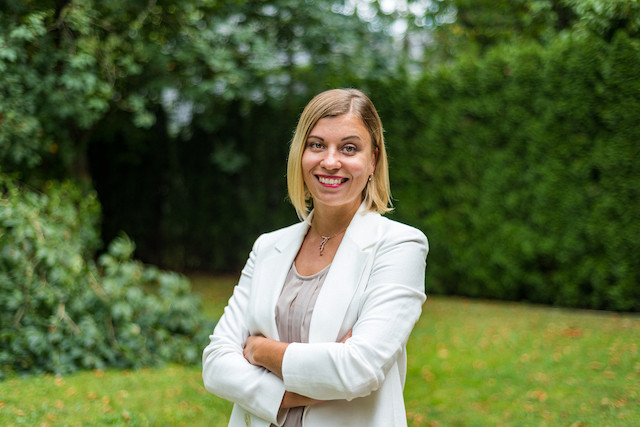“When I went to kindergarten,” she recalls, “I closed my eyes and covered [them] with a handkerchief and a scarf and gave my hand to my father to guide me. It makes your eyes itch, you cry a bit from the cold.”
Pichurina, who has lived in Luxembourg since 2014, spent her first 12 years in Ust-Nera, in the Sakha republic (also known as Yakutia) in Russia, some 450km from the Arctic Circle, which has been dubbed the coldest place in the world that people still inhabit.
Her birth certificate is written in both Russian and Yakutsk, the local Turkic language, spoken by some 450,000 people. Given the town’s strategic importance as a gold mining town, for a while “it didn’t even exist on maps,” she says.
Limited supplies, keeping warm
Although the region has hot, dry summers--“but even during that time it can snow”--in the winter temperatures can drop well below -40 degrees Celsius. “When it reached -50, we were not allowed to go to school at that age.”
Among the items she brought with her from her hometown include cosy slippers crocheted by her grandmother. “Grandmas in Siberia in general love to knit, so you can find knitted things for everything. [These items] really protect you from the cold.”

Traditional booties hand-croched by Pichurina's grandmother Photo: Mike Zenari
Despite the winter temperatures, “We just had normal radiators, nothing special, but there were no high buildings. The highest was four floors, but they were built on higher foundations because you cannot put anything on the ground, it’s so cold.”
It was similar for gardens. Fresh vegetables were limited to what was grown above ground, normally in greenhouses. Supplies were also limited, mainly being flown in when flights weren’t cancelled due to inclement weather.
Pichurina recalls it being difficult to get fresh chicken eggs, for example, and their main diet included meat (mainly deer), caviar as well as fish which “you take from the water still frozen and eat like [that]”. In fact, she was age six before she tasted her first grape in Yakutsk, reachable only by chartered plane (about an hour-long flight from Ust-Nera).
Missing the “wild nature”
Pichurina arrived in the grand duchy after having been transferred with a Korean gaming company she had worked with previously in Seoul (where she studied, worked and lived for five years). The company later decided Europe was not the most fitting market, she explains, and that’s how she ended up in her role as marketing and communications manager at East-West United Bank.
Although she has some colleagues from Siberia, “there’s not much in common really since it’s so large. We all remember meat, frozen fish, cold weather, but that’s it…you can’t compare different regions of Siberia.”
In Luxembourg, she sometimes visits the Russian market near the Gare to pick up caviar, sausages, pelmeni, even Russian mayonnaise, which she prefers to make the traditional “salad Olivier” that is eaten during end-of-year celebrations.
Although she doesn’t miss the extreme cold, “I still have memories of very beautiful, wild nature I haven’t seen anywhere else. It’s the thing I’d really like to show my husband one day.”
An alternate version of this article appeared in the October/November 2020 issue of Delano.
